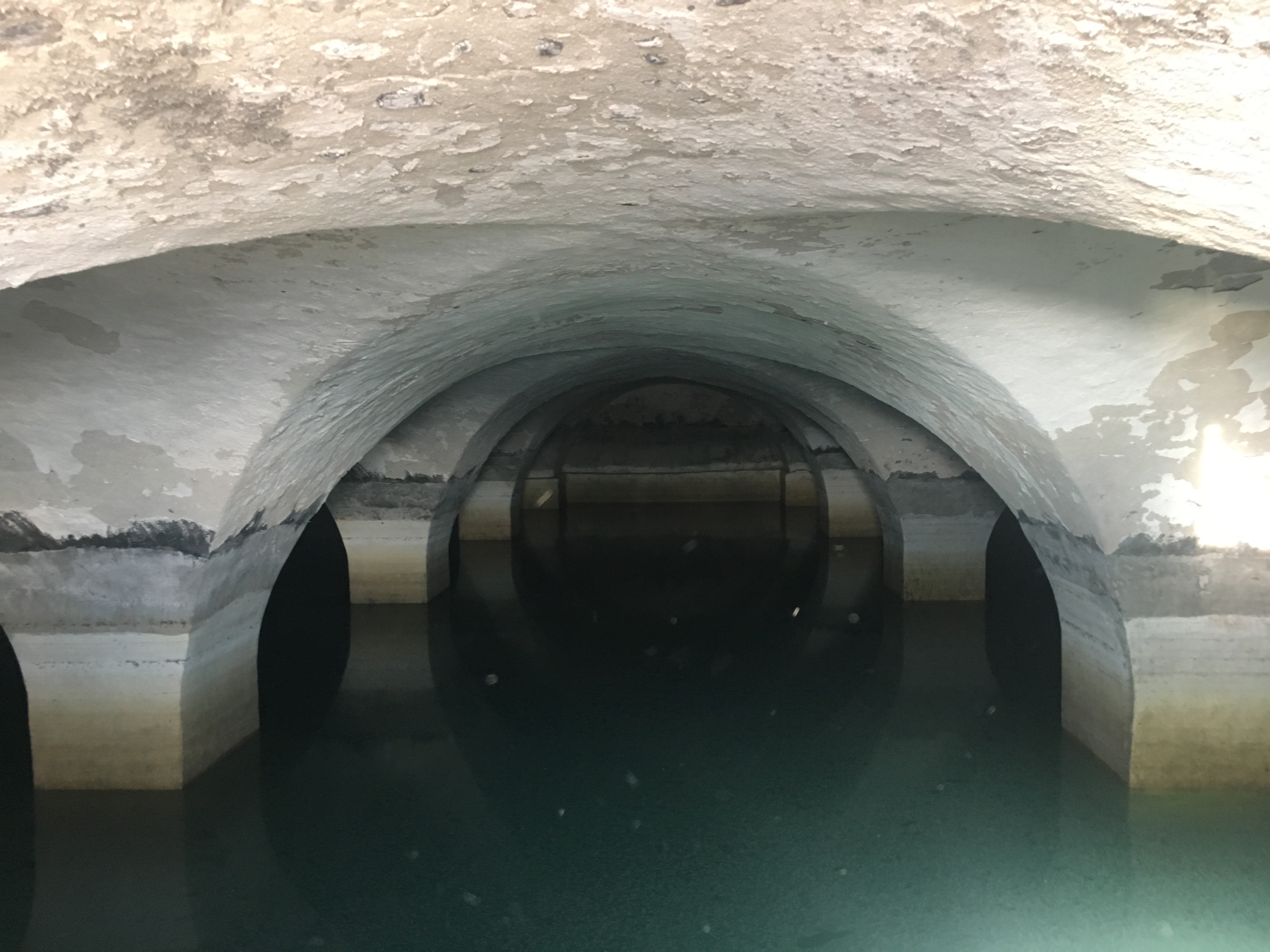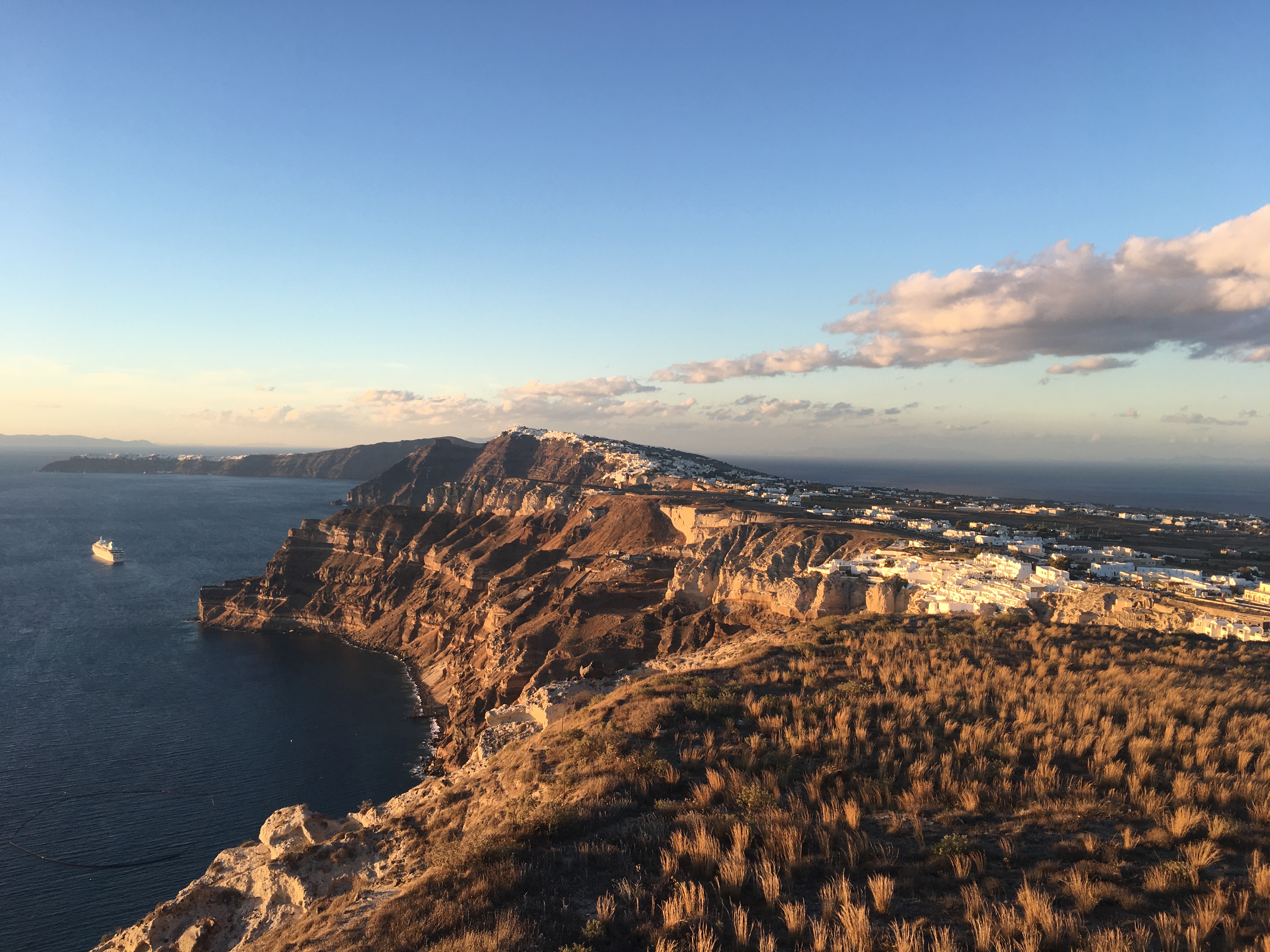Travelers across the world repeatedly voted Santorini as the most beautiful island of the world! The idyllic scenery is attracting a steadily increasing inflow of tourists that enjoy the local amenities over the years. Like all the other Aegean islands, historically Santorini too is challenged with extreme water scarcity and the local authorities are working hard to secure sufficient water supply in the local network.
Counting almost 2 million tourists just in 2017, the pressure on Santorini’s infrastructure, including water supply and sanitation, is alarming. In the past, Santorini recorded about 30,000 inhabitants who met their water needs via rainwater harvesting in handcrafted or stone-built cisterns located throughout the residential areas. Nowadays, to respond to the augmented demand, all efforts aim to increase water supply mainly through desalination, whilst a holistic water management approach is required to safeguard local water availability.
Appropriate water infrastructure, such as water reservoirs, grey water recycling systems and small desalination plants are prerequisite, however it must be acknowledged that local water availability also depends on a responsible water behavior. Residents and tourists can take small actions daily and help alleviate the stress on water resources in Santorini and beyond.
In this framework, GWP Mediterranean first worked in Santorini in 2010 via its Non Conventional Water Resources Programme, and is now returning with a dual mission: to support the local water utility optimise existing infrastructure, and to collaborate with authorities and the hospitality industry locally to promote water efficiency measures in businesses and instill a water-saving mindset among locals and tourists. Activities will be launched and completes in 2018.
To increase local water availability the NCWR Programme will undertake the restoration of a stone-built reservoir in Megalochori, which will be connected with the expanding water supply network securing a capacity of 1500 m3. This traditional rainwater harversting cictern, featuring elaborate arches in the inside, has served local water needs for over 65 years. Preserving such infrastructure allows future generations to learn from the wisdom of the past and replicate solutions accordingly.
To leverage a new water mentality, the Programme will focus on communicating water efficiency measures that can be adopted on a business and individual level. The idea is to promote the application of water efficiency devices in the hospitality industry, which can have a tremendous impact if embraced by businessmen. Awareness raising of water saving practices is the other Programme component, that is crucial to engage both locals and visitors to use water responsibly via a targeted campaign.
With a huge potential to contribute to the islands’ water security and enable sustainable economic development, the upcoming activities of GWP-Med aspire to set a new paradigm of integrated water management for sustainable tourism, especially in fragile insular environments, in Greece and elsewhere in the world.

